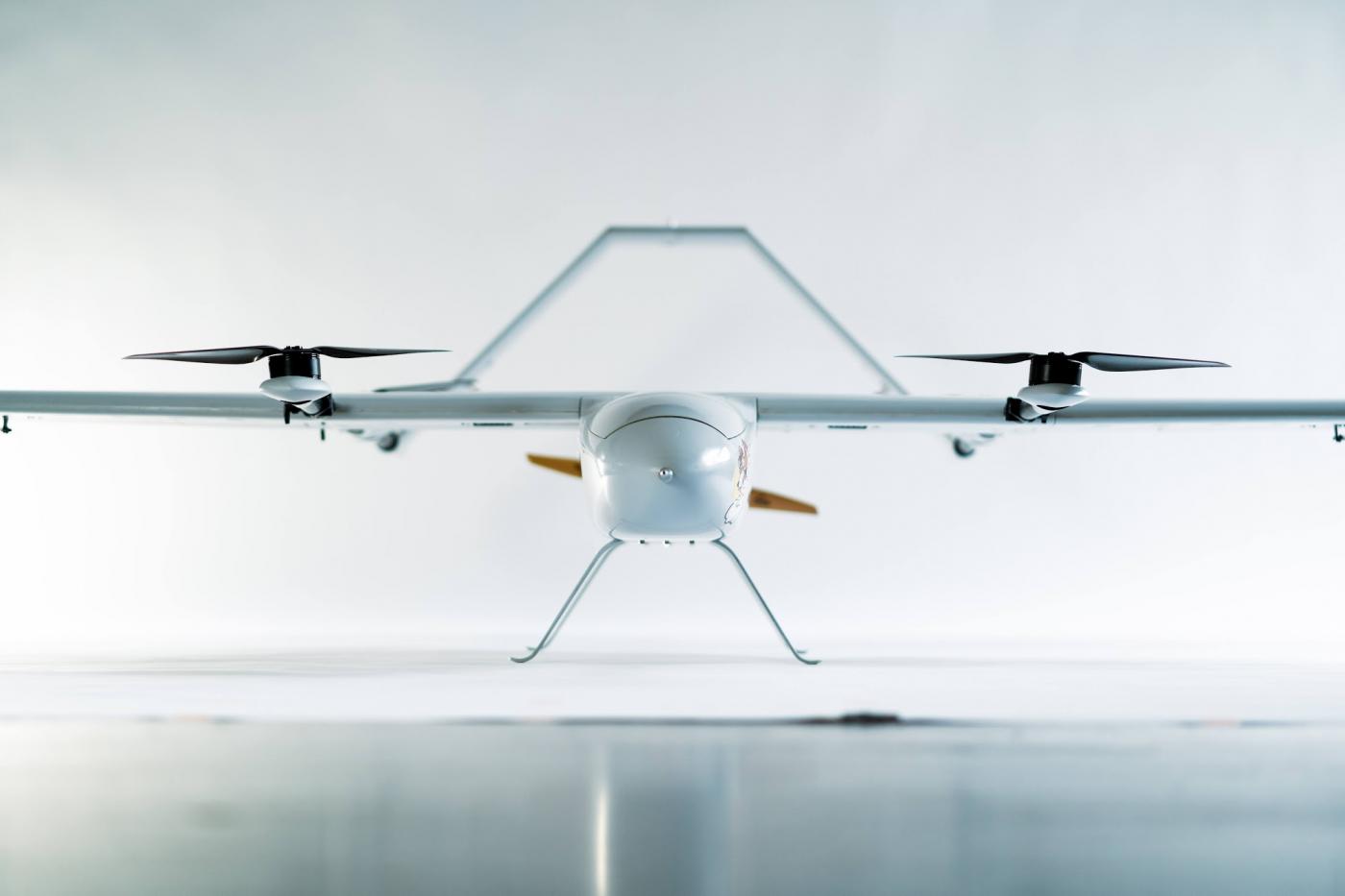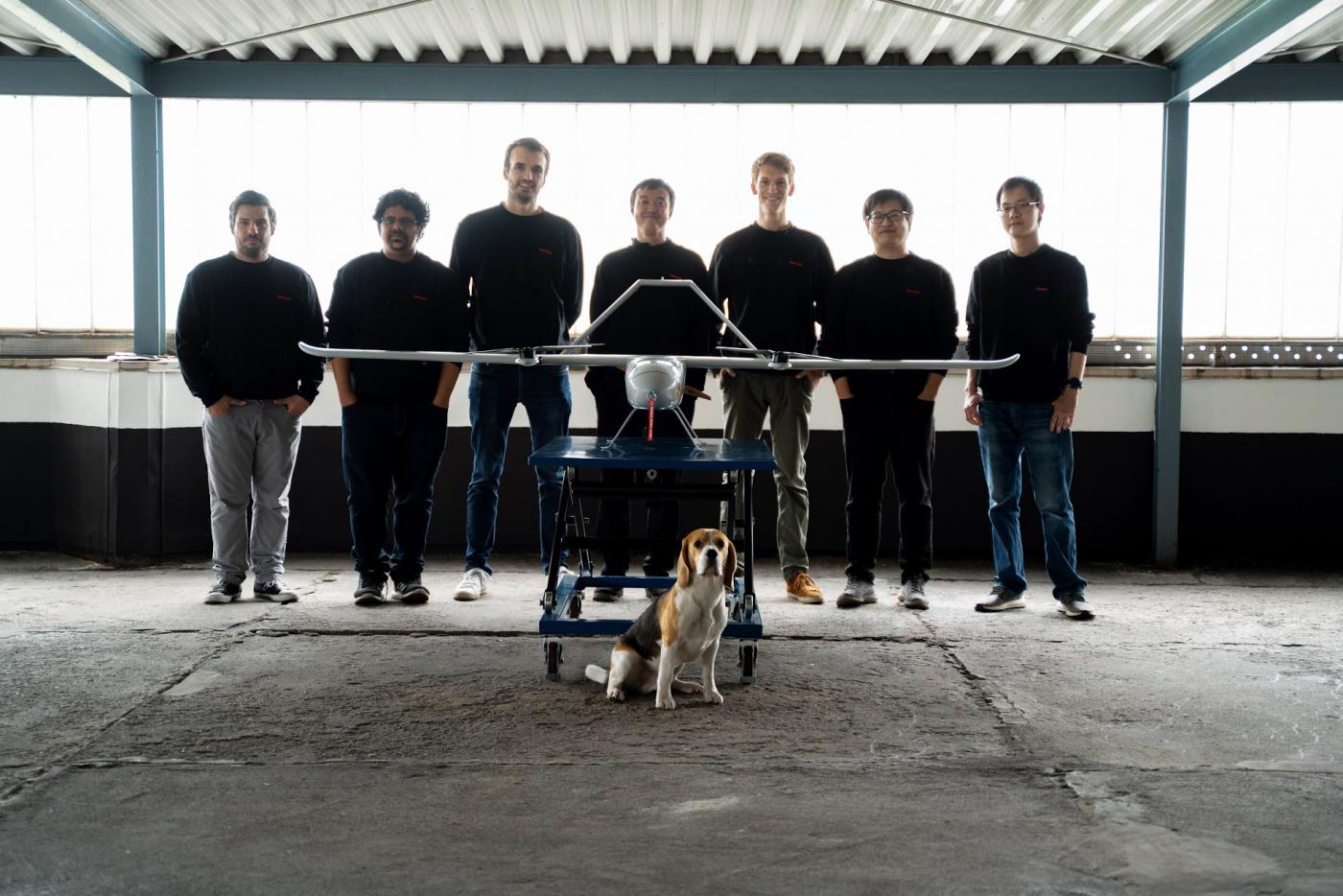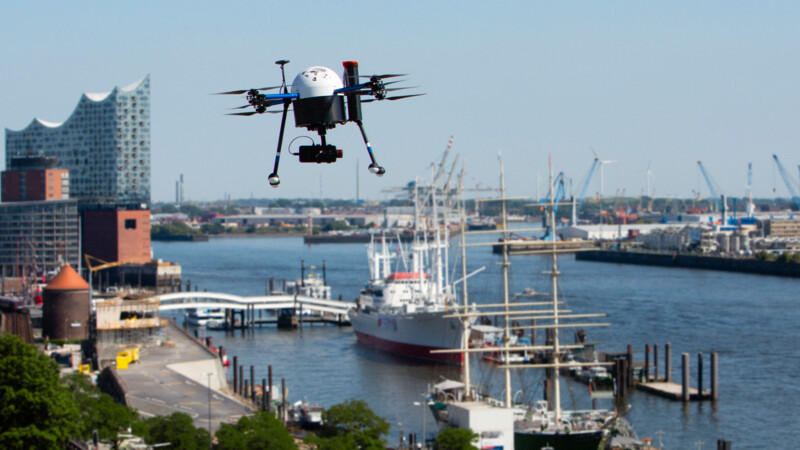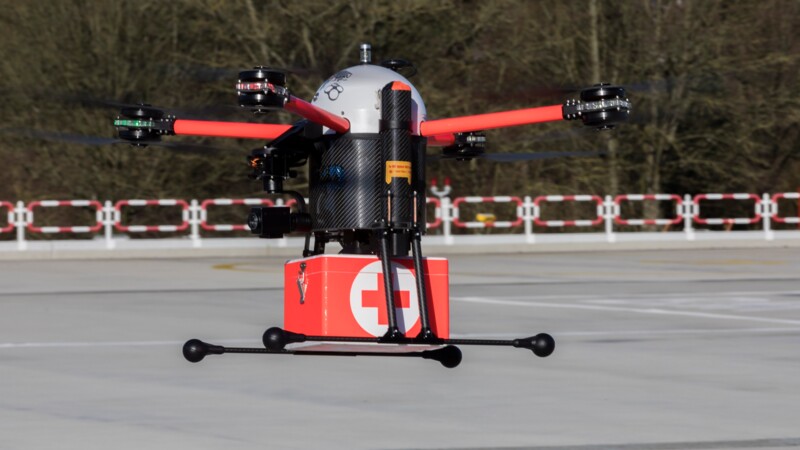Meanwhile, the PORTwings project is exploring possibilities for inspections and maintenance while the EU's research and development project "Robotic Vessels as a Service" (RoboVaaS) is expected to yield new findings. Emphasis is on small, unmanned surface and underwater vehicles for gathering topographic data, inspecting quay walls and ship hulls or collecting data from underwater acoustic sensor networks. The research consortium also includes HPA and Fraunhofer Center for Maritime Logistics and Services (Fraunhofer CML).
Drones are now taking to the skies and to the waters in the Port of Hamburg, which also boasts the first autonomous drone for surveying waterways called "Echo 1". The small surface drone with echo sounder is highly manoeuverable. Thanks to its shallow draft, the drone can take measurements in places that conventional sounding ships cannot reach.

Increasing use of drones
Already popular in the leisure sector, unmanned aircraft systems are opening up more and more commercial and social fields of activity. Although air taxis may be in the distant future, the use of drones for transporting medical samples, in disaster control, for surveying, security or surveillance purposes has been tested many times and is leading to viable business models. The Windrove network, launched in 2017 and funded by the German Ministry of Education and Research (BMBF), is an innovation forum for mid-sized companies. The network identifies framework conditions for using drones in a metropolitan region. A year later, Hamburg became one of Europe’s first model cities to develop civil uses of drones and other urban air traffic technology.
Prototype for efficient airspace management
Drones must be safely integrated into the airspace to operate successfully and Hamburg's complex and dense urban space offers an ideal testing ground for a viable UAV traffic management system. For this reason, the German Ministry of Transport and Digital Infrastructure put EUR 3 million towards the "Efficiently Organized Urban UAV Traffic " (UDVeo) project earlier this year. A consortium led by Helmut Schmidt University is developing the prototype of a largely, automated airspace management system for drones in Hamburg. "UAVs are an integral part of aviation in future. This project lays the foundation for integrating drones safely into existing airspace - an indispensable prerequisite for further development," said Michael Westhagemann, Senator for Economics, Transport and Innovation. Urban air transport will also top the agenda of the ITS World Congress, which Hamburg is hosting from October 11-15, 2021.
Airborne and waterborne drones
The Medifly project for transporting medical samples aboard UAVs enters a test phase lasting several months next year. The project, which is funded by the German Ministry of Transport and Digital Infrastructure (BMVI), successfully completed six drone flights in Hamburg and won the innovation prize "Reallabore" by the Germany Ministry of Economics and Energy (BMWi) in the category "Retrospects" in February 2020. Meanwhile, researchers at Centre for Applied Aviation Research (ZAL GmbH) have expressed satisfaction with test flights of the ZALbatros. The hydrogen-powered drone achieved a flight duration of two hours and ten minutes unlike conventional, battery-powered drones that have to land after just over half an hour in the air.
Big players and smart start-ups
Clever start-ups are increasingly behind advancements in drone technology across Hamburg. The founders of the Bluebird Mountain start-up have developed an avalanche rescue drone for skiers and snowboarders. Small and light, the drone fits into any backpack and can be launched at the push of a button in an emergency. The Beagle Systems start-ups offers autonomous drone flights with up to 3 kg payload and 200 km range, but only in Lower Saxony at present. This summer, the start-up became the first in Germany to obtain a general permit for flights without visual contact.

Film crew cannot be visible in any 360° videos. The Hamburg-based start-up SpiceVR offers an ideal, free floating solution in the form of Spherie, which combines drone and virtual reality technology. The 360° virtual reality camera system flies without vibrating thanks to its special construction and guarantees the immersion needed for the VR world.
Rapid growth forecast
Around 400 companies in Germany are dedicated to UAV and employ 12 staff on average, according to an analysis by the Federal Association of the German Aviation Industry (Bundesverband der Deutschen Luftverkehrswirtschaft e.V.) in February 2019. However, some 10,000 people in Germany are professionally involved with drones and around 850,000 drones will be operational by 2030, the study forecast. While growth in the private use sector is levelling off, the number of commercially used drones has risen to 126,000 and rapid market growth is expected. The German UAV market alone is expected to grow from EUR 574 million to EUR 3 billion by 2030 and corresponds to an average annual growth rate of 14 per cent.
ys/kk/pb
More
Similar articles

Hamburg putting EUR 2 million towards urban air transport

Aviation facing new normality in wake of COVID-19

Awards for Hamburg's mobility projects
